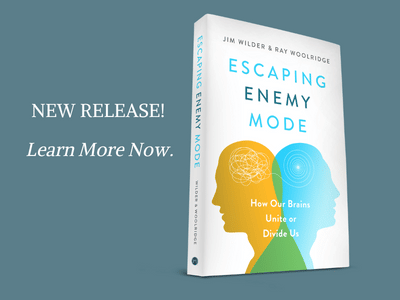What does “neurotheology” mean? Dr. Andrew Newberg wrote Principles of Neurotheology and was interviewed by NPR in 2010. He called neurotheology “the relationship between the brain and religious experience (https://www.npr.org/2010/12/15/132078267/neurotheology-where-religion-and-sciencecollide).”
Long before Dr. Newberg’s article, Dr. Jim Wilder and a team of dedicated researchers and counselors developed the Life Model.
“The Life Model is an idealized conception of God’s design for human maturation and transformation into the image of Christ from cradle to grave. The Life Model is built on the three pillars of Multigenerational Community, Immanuel Awareness and Relational Brain Skills.”
Since the “decade of the brain” in the 1990s when researchers could use brain scan machines to examine living, functioning human brains, much has been discovered about how human beings attach, respond, connect, form identity, and develop identity groups. Wilder and his colleagues built on the work of Dr. Alan Schore of UCLA, widely considered the “Einstein of Psychiatry.” Dr. Wilder applied Dr. Schore’s findings on the human brain and attachment to the Life Model.
To Life Model Works, neurotheology is all about the study of brain science and Christian theology. We are a nonprofit ministry operating from a Christian theological perspective. The same God who inspired the writing of scripture also designed the brain. When we study the brain, we see his design in astounding complexity and beauty. Neurotheology does not diminish traditional spiritual disciplines; rather, it empowers them and makes them whole-brain activities.
Second, why does neurotheology matter to me? And to you?
Let me tell you a story about why it matters so much to me. When I lashed out verbally the other night while accomplishing a routine chore, I was stuck in enemy mode. I went there so fast; I didn’t even know how I got there. Brain science tells us “What wires together, fires together.” That means when enemy mode is your normal mode of living, you will fall into it rapidly. Getting out of it and staying relational will take longer, like climbing up a hill. Christian neurotheology shows the way to become a more relational person. I could have calmed myself, listened for Jesus, and kept my mouth shut. Sadly, I didn’t.
- Do you ever I lose it in traffic on a stranger who is not your enemy and then wonder why you did that?
- Have you ever been stuck in a negative cycle of emotions, unable to return to peace and joy?
- Do you find yourself repeated the same destructive relational patterns and long to get free?
Neurotheology is for you. Let Life Model Works help you.
At Life Model Works, we don’t just talk about and teach neurotheology, we are about living it out, right at the intersection of brain science and biblical theology. We are Christians who are seeking to be people who love like Jesus loves, and even love our enemies. We long to become our best selves, healed from our trauma and free from misdirected growth. We are on the journey with you to become our best selves, the people God designed us to be.









